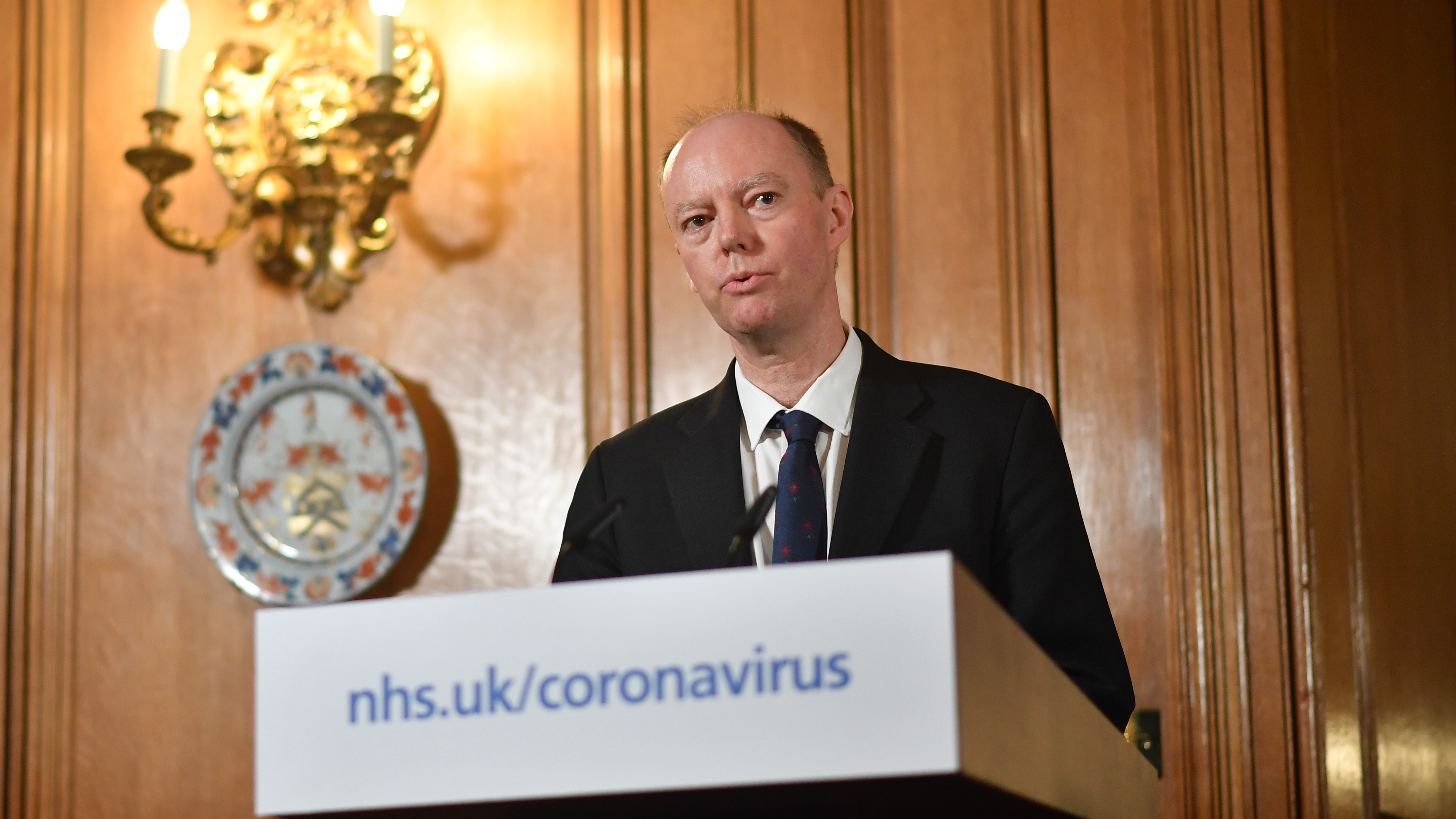PHE never believed Covid-19 would ‘travel this far’, says ex-chief medical officer
Conviction that virus would ‘die out’ left UK on back foot for rolling out mass testing and contract tracing systems

A free daily email with the biggest news stories of the day – and the best features from TheWeek.com
You are now subscribed
Your newsletter sign-up was successful
Public Health England (PHE) never believed that Covid-19 would “travel this far” from Asia and prepared for the “wrong pandemic”, according to England’s former chief medical officer.
In an upcoming address to a public inquiry into the UK’s response to the virus, Sally Davies “will say the scientific advice to focus on the threat from influenza meant the UK never put plans in place for mass testing and contact tracing”, reports The Telegraph.
This meant that “unlike other countries who managed to keep Covid largely under control”, contingency plans had not been prepared when the pandemic arrived in the UK, the paper adds.
The Week
Escape your echo chamber. Get the facts behind the news, plus analysis from multiple perspectives.

Sign up for The Week's Free Newsletters
From our morning news briefing to a weekly Good News Newsletter, get the best of The Week delivered directly to your inbox.
From our morning news briefing to a weekly Good News Newsletter, get the best of The Week delivered directly to your inbox.
Davies - who handed over the advisory role to Professor Chris Whitty last year - says that she asked PHE in 2015 whether the government should rehearse for an outbreak of Severe Acute Respiratory Syndrome (Sars), another type of coronavirus. She claims to have been told by the health body that a coronavirus would “die out” before it reached the UK, and would “never travel this far”.
In her first interview since leaving the chief medical officer post, she told The Telegraph: “We were not as well prepared as we should have been... I think the public deserves to know everything.”
Last year, the Global Health Security Index rated the UK as one of the countries best prepared for a pandemic, along with the US, France and Australia. Yet all four nations have been hit hard by the Covid pandemic, with the UK and US reporting some of the worst outcomes.
The number of people in Britain who have lost their lives to Covid passed 50,000 this week, according to government figures - the first country in Europe to reach the grim milestone. A further 595 deaths were announced on Wednesday, the highest figure since 12 May.
A free daily email with the biggest news stories of the day – and the best features from TheWeek.com
The government is also concerned by a steep rise in daily confirmed coronavirus cases, just over a week after the UK began its second national lockdown. Cases increased by 46% yesterday to 33,470, “with officials fearing the jump a result of pre-lockdown partying”, The Times reports.
Sorcha Bradley is a writer at The Week and a regular on “The Week Unwrapped” podcast. She worked at The Week magazine for a year and a half before taking up her current role with the digital team, where she mostly covers UK current affairs and politics. Before joining The Week, Sorcha worked at slow-news start-up Tortoise Media. She has also written for Sky News, The Sunday Times, the London Evening Standard and Grazia magazine, among other publications. She has a master’s in newspaper journalism from City, University of London, where she specialised in political journalism.
-
 What are the best investments for beginners?
What are the best investments for beginners?The Explainer Stocks and ETFs and bonds, oh my
-
 What to know before filing your own taxes for the first time
What to know before filing your own taxes for the first timethe explainer Tackle this financial milestone with confidence
-
 The biggest box office flops of the 21st century
The biggest box office flops of the 21st centuryin depth Unnecessary remakes and turgid, expensive CGI-fests highlight this list of these most notorious box-office losers
-
 How corrupt is the UK?
How corrupt is the UK?The Explainer Decline in standards ‘risks becoming a defining feature of our political culture’ as Britain falls to lowest ever score on global index
-
 The high street: Britain’s next political battleground?
The high street: Britain’s next political battleground?In the Spotlight Mass closure of shops and influx of organised crime are fuelling voter anger, and offer an opening for Reform UK
-
 Is a Reform-Tory pact becoming more likely?
Is a Reform-Tory pact becoming more likely?Today’s Big Question Nigel Farage’s party is ahead in the polls but still falls well short of a Commons majority, while Conservatives are still losing MPs to Reform
-
 Taking the low road: why the SNP is still standing strong
Taking the low road: why the SNP is still standing strongTalking Point Party is on track for a fifth consecutive victory in May’s Holyrood election, despite controversies and plummeting support
-
 What difference will the 'historic' UK-Germany treaty make?
What difference will the 'historic' UK-Germany treaty make?Today's Big Question Europe's two biggest economies sign first treaty since WWII, underscoring 'triangle alliance' with France amid growing Russian threat and US distance
-
 Is the G7 still relevant?
Is the G7 still relevant?Talking Point Donald Trump's early departure cast a shadow over this week's meeting of the world's major democracies
-
 Angela Rayner: Labour's next leader?
Angela Rayner: Labour's next leader?Today's Big Question A leaked memo has sparked speculation that the deputy PM is positioning herself as the left-of-centre alternative to Keir Starmer
-
 Is Starmer's plan to send migrants overseas Rwanda 2.0?
Is Starmer's plan to send migrants overseas Rwanda 2.0?Today's Big Question Failed asylum seekers could be removed to Balkan nations under new government plans